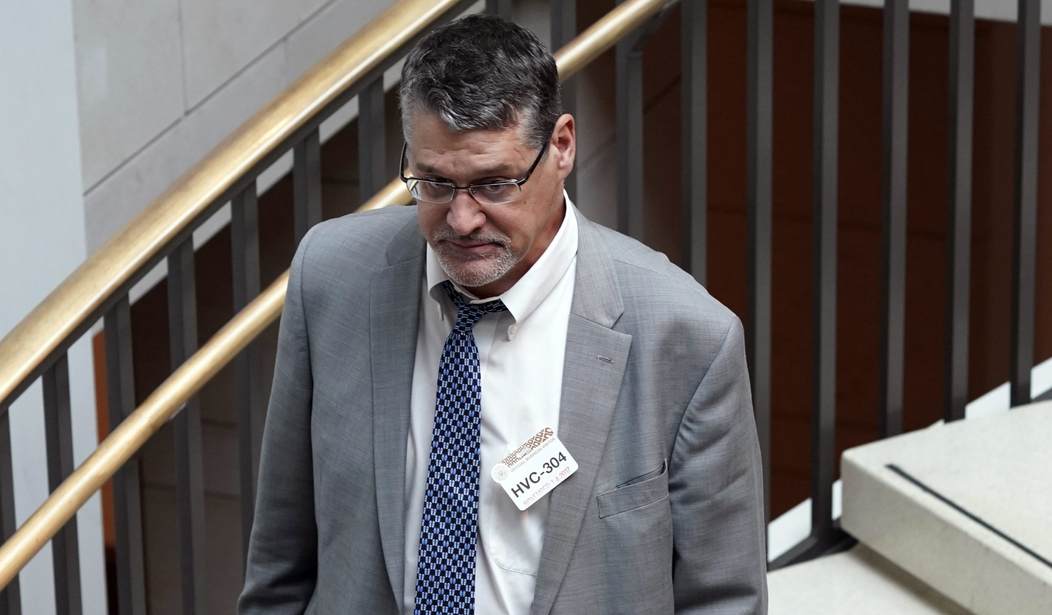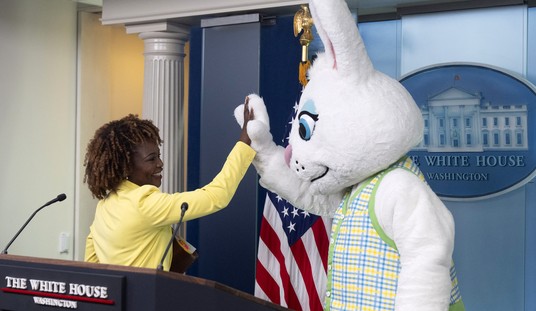WASHINGTON — Fusion GPS co-founder Glenn Simpson told the House Intelligence Committee in closed-door testimony that he “saw patterns of buying and selling” by President Trump “that we thought were suggestive of money laundering,” and indicated Russians infiltrated conservative groups like the National Rifle Association as part of their campaign influence operation.
After Sen. Dianne Feinstein (D-Calif.) last week released the transcript of Simpson’s interview with the Senate Judiciary Committee, the House Intel panel voted unanimously today to release transcripts, with a few redactions, from their Nov. 8 (at which Simpson invoked the Fifth) and Nov. 14 interviews with the company head behind the infamous Trump dossier.
Simpson confirmed that his firm was originally hired in fall 2015 by the Free Beacon to take “an open-ended look at Donald Trump’s business career and his litigation history and his relationships with questionable people, how much he was really worth, how he ran his casinos, what kind of performance he had in other lines of work.” He noted that Fusion GPS has had “only had a very small number of political clients” and was not out to “come up with a hit piece on anybody.” They also looked into Sen. Ted Cruz (R-Texas) as part of the Free Beacon work, he said.
Work for the Free Beacon ceased in spring 2016, he said. Fusion GPS was later hired by law firm Perkins Cole, which had been retained by the DNC. “We began to review what we had learned over the previous months and talk about what we would do, you know, now that we would have resources to pursue this – some of these matters further,” Simpson said.
“Specific lines of inquiry” into the GOP presidential candidate “were a lot of Mr. Trump’s overseas business deals, his history with regard to tax disputes” and labor practices with his clothing line.
Former MI6 operative Christopher Steele was recommended to Simpson, who had covered Russian organized crime while working for the Wall Street Journal, by “a mutual acquaintance.” Steele and Simpson first met in 2009 and “would talk about various Russian corruption issues, organized crime, oligarchs” over coffee meetings over the years.
Simpson said that in the initial stages of the Fusion GPS probe they “developed a lot of additional information suggesting that the company that Donald Trump had been associated with and Felix Sater, Bayrock, was engaged in illicit financial business activity and had organized crime connections.”
“We also had sort of more broadly learned that Mr. Trump had longtime associations with Italian organized crime figures. And as we pieced together the early years of his biography, it seemed as if during the early part of his career he had connections to a lot of Italian mafia figures, and then gradually during the nineties became associated with Russian mafia figures,” he told lawmakers. “…We also increasingly saw that Mr. Trump’s business career had evolved over the prior decade into a lot of projects in overseas places, particularly in the former Soviet Union, that were very opaque, and that he had made a number of trips to Russia, but said he’d never done a business deal there. And I found that mysterious.”
He said they noted “various criminals” were buying Trump properties, including “a Russian gangster living in Trump Tower” who shared the VIP section with Trump and “lots of other Kremlin biggies” when Trump went to Russia for the Miss Universe pageant in 2013. Another deal that raised eyebrows was the Trump golf courses in Scotland and Ireland, he added, which showed “enormous amounts of capital flowing into these projects from unknown sources.”
“If people who seem to be associated with the Russian mafia are buying Trump properties or arranging for other people to buy Trump properties, it does raise a question about whether they’re doing it on behalf of the government,” Simpson said.
Simpson ultimately paid Steele about $160,000 for his work, he said. That didn’t include any trips to Russia as Steele “really would not be safe” there, having been exposed as a former MI6 undercover operative in Russia. When Steele’s reports began to come in, “we did a lot of discussing of whether this was credible information” but Simpson could not offer an example to the committee of information they were able to discredit.
“I was not particularly interested in some of the things that he found that are among the most controversial, because I didn’t think they were useful or important for what I was trying to do. And so I to this day can’t tell you whether a lot of those things — I just don’t have a strong view as to whether they are false or true, per se,” he continued. “But what we did do is look at names and places and people and whether they matched up with information we could get elsewhere. And all of that, as far as it went, checked out.” He said that “numerous things in the dossier have been verified.”
Detailing various individuals and relationships, Simpson told the committee that “as we got deeper and deeper into understanding, you know, Donald Trump’s business career and his history, it gradually reached a point where it seemed like most of the people around Trump had a connection to Russian organized crime or Russia in one way or another.”
He said the “raw field memoranda” from Steele “was of such a kind of disturbing and serious nature” that he didn’t polish up the material for the client.
Simpson pointed to “a well-established pattern of surreptitious contacts that occurred last year that supports the broad allegation of some sort of an undisclosed political or financial relationship between The Trump Organization and people in Russia,” yet “I’m certainly not prepared to say and never wanted to be the person who had to determine whether that’s a criminal conspiracy.”
Simpson said Steele told him in summer 2016 that he had a national security obligation, considering the close intelligence relationship between the U.S. and Britain, to report his findings to the FBI. Simpson said he was “very upset” when someone gave the dossier to BuzzFeed and it was published; he said he only has “suspicions” about who leaked the document. “We thought this was a real national security issue, and because we thought that if it was just put out there in the way it was put out that people could get hurt and that people literally risked their lives to tell us some of this stuff,” he said.
The Fusion GPS co-founder told House Intel members that “it appears the Russians, you know, infiltrated the NRA.”
“And there is more than one explanation for why. But I would say, broadly speaking, it appears that the Russian operation was designed to infiltrate conservative organizations. And they targeted various conservative organizations, religious and otherwise, and they seem to have made a very concerted effort to get in with the NRA,” Simpson said, including “Russian banker-slash-Duma member-slash-Mafia leader” and life NRA member Alexander Torshin. “…Vladimir Putin is not in favor of universal gun ownership for Russians. And so it’s all a big charade, basically.”
McClatchy reported earlier today that the FBI is investigating whether Torshin illegally funneled funds to the NRA in connection with the 2016 election.
Russia also pursued relationships with “various religious groups” and has gotten involved with “California independence, Texas independence” movements, Simpson added.








Join the conversation as a VIP Member